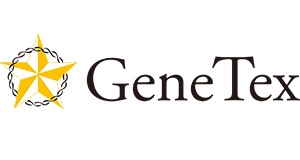RPS6 (phospho Ser235) antibody (HL3793)
RPS6 (phospho Ser235) antibody (HL3793)
Artikelnummer
GTX642012-S-25
Verpackungseinheit
25 μl
Hersteller
GeneTex
Verfügbarkeit:
wird geladen...
Preis wird geladen...
Clone Name: HL3793
Light Chain: Kappa
Application Note: WB: 1:500-1:3000. *Optimal dilutions/concentrations should be determined by the researcher.Not tested in other applications.
Form: Liquid
Buffer (with preservative): PBS, no preservative.
Concentration: 1 mg/ml (Please refer to the vial label for the specific concentration.)
Background: Ribosomes, the organelles that catalyze protein synthesis, consist of a small 40S subunit and a large 60S subunit. Together these subunits are composed of 4 RNA species and approximately 80 structurally distinct proteins. This gene encodes a cytoplasmic ribosomal protein that is a component of the 40S subunit. The protein belongs to the S6E family of ribosomal proteins. It is the major substrate of protein kinases in the ribosome, with subsets of five C-terminal serine residues phosphorylated by different protein kinases. Phosphorylation is induced by a wide range of stimuli, including growth factors, tumor-promoting agents, and mitogens. Dephosphorylation occurs at growth arrest. The protein may contribute to the control of cell growth and proliferation through the selective translation of particular classes of mRNA. As is typical for genes encoding ribosomal proteins, there are multiple processed pseudogenes of this gene dispersed through the genome. [provided by RefSeq, Jul 2008]
Uniprot ID: P62753
Antigen Species: Human
Immunogen: Carrier-protein conjugated synthetic peptide surrounding phospho Ser235 of human RPS6. The exact sequence is proprietary.
Purification: Affinity purified by Protein A.
Conjugation: Unconjugated
Full Name: ribosomal protein S6
Light Chain: Kappa
Application Note: WB: 1:500-1:3000. *Optimal dilutions/concentrations should be determined by the researcher.Not tested in other applications.
Form: Liquid
Buffer (with preservative): PBS, no preservative.
Concentration: 1 mg/ml (Please refer to the vial label for the specific concentration.)
Background: Ribosomes, the organelles that catalyze protein synthesis, consist of a small 40S subunit and a large 60S subunit. Together these subunits are composed of 4 RNA species and approximately 80 structurally distinct proteins. This gene encodes a cytoplasmic ribosomal protein that is a component of the 40S subunit. The protein belongs to the S6E family of ribosomal proteins. It is the major substrate of protein kinases in the ribosome, with subsets of five C-terminal serine residues phosphorylated by different protein kinases. Phosphorylation is induced by a wide range of stimuli, including growth factors, tumor-promoting agents, and mitogens. Dephosphorylation occurs at growth arrest. The protein may contribute to the control of cell growth and proliferation through the selective translation of particular classes of mRNA. As is typical for genes encoding ribosomal proteins, there are multiple processed pseudogenes of this gene dispersed through the genome. [provided by RefSeq, Jul 2008]
Uniprot ID: P62753
Antigen Species: Human
Immunogen: Carrier-protein conjugated synthetic peptide surrounding phospho Ser235 of human RPS6. The exact sequence is proprietary.
Purification: Affinity purified by Protein A.
Conjugation: Unconjugated
Full Name: ribosomal protein S6
| Artikelnummer | GTX642012-S-25 |
|---|---|
| Hersteller | GeneTex |
| Hersteller Artikelnummer | GTX642012-S-25 |
| Verpackungseinheit | 25 μl |
| Mengeneinheit | STK |
| Reaktivität | Human, Mouse (Murine) |
| Klonalität | Monoclonal |
| Methode | Western Blotting |
| Isotyp | IgG |
| Human Gene ID | 6194 |
| Wirt | Rabbit |
| Konjugat | Unconjugated |
| Produktinformation (PDF) |
|
| MSDS (PDF) |
|

 English
English







